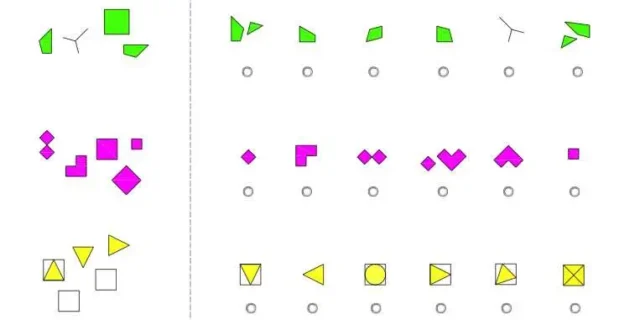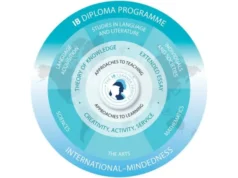
Have you ever wondered about the logic behind IQ tests? In fact, have you ever done one yourself? If not, now might be a good time to give it a go and see exactly where you stand. For some people, these can seem quite complex or hard to do at first.
To describe all the complexities of these methods in detail would take a lifetime, a master’s degree in psychometrics, and hundreds of pages, so instead, we will provide a very brief, general, and straightforward explanation. Do you want to know what your IQ is, or how to nail a specific quiz? If so, keep on reading and find your answers down below.
Can you create your own IQ test? 5 Tips & Guidelines

1. How to make an IQ quiz different?
It is useful to understand the differences between IQ testing and other interactive methods.
A typical IQ test is a multiple-choice exam where the number of points awarded for correct answers fluctuates depending on how challenging the question is.
Also, keep in mind that IQ tests are more challenging than general knowledge and trivia tests.
To put it frankly, people do anticipate an IQ test to be a little more difficult than usual.
The feeling of success after passing the test will increase as the quiz’s level of difficulty rises.
However, the quiz shouldn’t have more than ten to twenty questions.
2. So, how to make your own quiz + how to make it look catchy
You may select any format you desire because this is a test that will be graded.
The first step after entering the constructor is to choose a quiz name.
Spend some time coming up with a title that will catch readers’ attention.
Please feel free to use as many descriptive adjectives as you like in titles because they are very significant, as well as SEO-friendly.
But be careful to keep the title short. Here are some catchy options to consider:
- You need an IQ of 100 to score 8 on this quiz
- Are you smarter than 1% of the human race?
- Can we compare you to Sherlock Holmes in terms of intelligence?

3. How is an IQ test made?
Before we can design an intelligence exam, we need to assemble two groups of experts to build the test items and analyze the results. It can be a time-consuming process for most people.
Essential metrics to watch and maintain tabs on including the number of questions answered correctly by each test taker and their corresponding scores on a certified test.
Do they show a clear correlation with the outcomes of experiments?
If this is the case, we know that our IQ test is a reliable indicator of a person’s IQ and may continue on to the next phase.
4. The most common questions about this type of a quiz
A) How does this test work?
Most IQ tests consist of two parts: linguistic ability and mental speed.
The true IQ of test takers can only be determined by having them answer a large number of objective questions.
The purpose of the verbal section of an intelligence test is to get insight into the test vocabulary, the taker’s ability to apply language to reasoning and problem-solving, and the approach to processing verbal information.
The cognitive section evaluates the test taker’s ability to remember and process information presented in written form.
B) What is a normal IQ?
There is no universally applicable solution to this problem because everyone’s IQ varies greatly.
However, the majority of specialists concur that the majority of people have IQs between 100 and 130.
IQ scores for adults normally vary from 100 to 130.
A genius is generally considered to have an IQ of at least 130. Don’t worry if you’re not within this field, as it can vary from one country, age, gender, and genes.

5. What are some popular tests to take?
The Wechsler Adult Intelligence Scale (WAIS) is a reliable option for adults and older high school students (16+). (WAIS).
The test primarily assesses the test-verbal taker’s comprehension, sustained thinking, working memory, and cognitive processing speed.
Note that this test’s validity decreases at the extremes of the IQ spectrum (under 40 and over 160). It is also popular in schools and colleges.
For younger children and adolescents (ages 6 to 16), Wechsler offers the Preschool and Primary Scale of Intelligence (WPPSI).
The Wechsler Individual Achievement Test (WIAT)
This method is suitable for determining a child’s IQ between the ages of 2 and 7, so long as the youngster is healthy enough to take the test.
Young children are often put through the WISC to determine if they have any kind of cognitive delay or if they are extraordinarily gifted.
The Stanford-Binet Intelligence Scale, which may be used with people of any age group, provides the most reliable IQ results (ages 2 through 18).
Mensa Admissions Exam – The Mensa International Society accepts new members with an IQ of 140 to 150.
The Mensa Admissions Test is one of the most extensively used and easily available intelligence tests because of its high level of reliability.
Even while most of them cannot be used to join Mensa or similar organizations, they can nonetheless provide a highly accurate assessment of IQ.
If you’re simply doing it for kicks, this is the way to go.

Where can you take a fun and accurate quiz?
After reading this article you probably might want to take this quiz and see where you stand, along with your score, right? Well, those who wish to have fun and have the time to answer 25 questions should go to iq-online-test.com. You can compare your results with people all over the world or your closest friends, family, and colleagues. Invest a bit of your time and see how good you are with pattern recognition, spatial reasoning, logical reasoning, and classification skills. Convenient and fun, everyone should give it a go.














